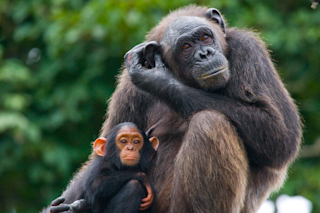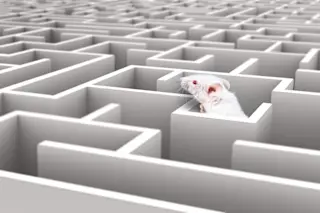
An investigation of Marc Hauser, a Harvard University psychology professor who studies primate behavior and animal cognition, came to a head on Friday with a letter from Harvard's dean confirming eight instances of scientific misconduct. The exact offenses are still unclear, but three papers have received or are receiving modifications. The papers include a 2002 Cognition article (retracted), a 2007 article in Proceedings of the Royal Society B (received an addendum), and a 2007 article in Science. From Harvard Dean Michael Smith's letter:
[T]he investigating committee found problems with respect to the three publications mentioned previously, and five other studies that either did not result in publications or where the problems were corrected prior to publication. While different issues were detected for the studies reviewed, overall, the experiments reported were designed and conducted, but there were problems involving data acquisition, data analysis, data retention, and the reporting of research methodologies and results. [Chronicle of Higher Education]
While Harvard has not been forthcoming with the details, one former research assistant provided the Chronicle of Higher Education with email exchanges between research assistants and Hauser, related to particular problems interpreting results from primate study. Specifically, the unpublished study reportedly attempted to determine if primates could recognize sound patterns--what some see as a skill for language development. From the Chronicle's description, the data's interpretation required determining if a monkey was looking at a stereo speaker as a response to an unusual sound pattern played after a series of similar ones. A research assistant's evaluation and Hauser's appeared to significantly differ; in Hauser's assessment the monkeys had showed their cognitive skills by responding to the unusual pattern, while the assistant's evaluation showed the opposite. After repeated suggestions from the assistant that a third party look at the data, Hauser reportedly refused:
[T]he research assistant who analyzed the numbers explained his concern. "I don't feel comfortable analyzing results/publishing data with that kind of skew until we can verify that with a third coder," he wrote.... After several back-and-forths, it became plain that the professor was annoyed. "i am getting a bit pissed here," Mr. Hauser wrote in an e-mail to one research assistant. "there were no inconsistencies! let me repeat what happened. i coded everything. then [a research assistant] coded all the trials highlighted in yellow. we only had one trial that didn't agree. i then mistakenly told [another research assistant] to look at column B when he should have looked at column D. ... we need to resolve this because i am not sure why we are going in circles." [Chronicle of Higher Education]
David Dobbs has a detailed post on his blogNeuron Culture on how the test itself should work and how it might have gone wrong with Hauser's lab. Since federal grants helped fund some of Hauser's research, as the Dean's letter describes, federal agencies (PHS Office of Research Integrity, the NSF Office of Inspector General and the U.S. Attorney's Office for the District of Massachusetts) will continue to investigate. Harvard is keeping mum on their exact findings and Hauser's fate at the university. The Dean's letter does detail some possible sanctions: involuntary leave, oversight on Hauser's research lab, and restrictions on Hauser's ability to apply for grants, among other things. Hauser spoke to The New York Times on Friday.
Dr. Hauser, a rising star for his explorations into cognition and morality, made his first public statement since news of the inquiry emerged last week, telling The New York Times, “I acknowledge that I made some significant mistakes” and saying he was “deeply sorry for the problems this case had caused to my students, my colleagues and my university.” [The New York Times]
For more on the investigation, see posts by DISCOVER's Ed Yong on Not Exactly Rocket Science and Razib Khan on Gene Expression. Related content: 80beats: ClimateGate Inquiry: No Scientific Misconduct From “Squeaky Clean” Researchers 80beats: The Lancet Retracts 1998 Paper That Linked Vaccinations to Autism 80beats: South Korean Cloning Scientist Is Convicted, but Spared Jail Time 80beats: Nuclear Fusion Researcher Found Guilty of Scientific Misconduct
Image: flickr / Ryan Wick













